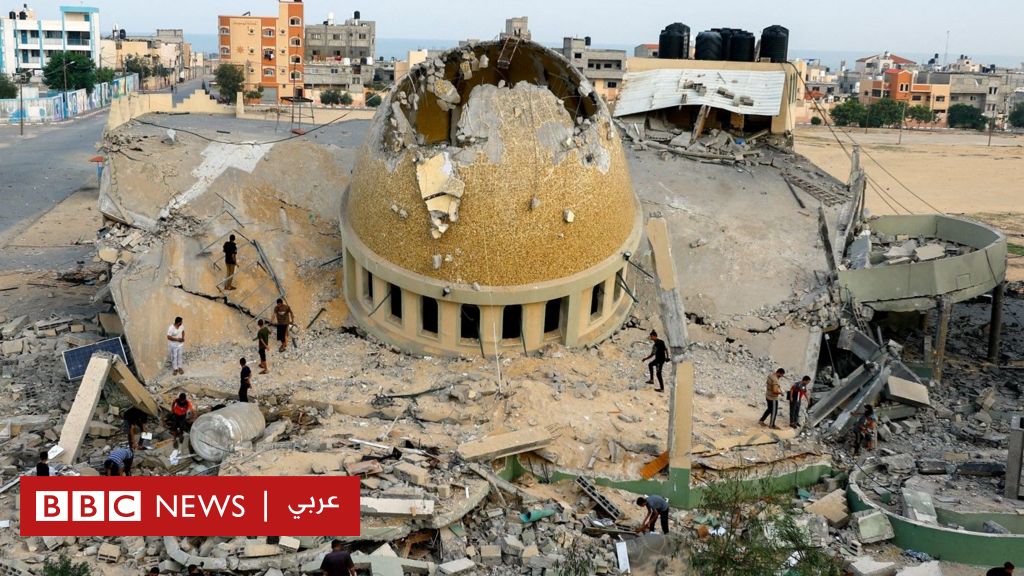Historical Context

The relationship between Iran and Israel has been marked by deep animosity and mistrust for decades, rooted in complex historical, ideological, and geopolitical factors. This rivalry has escalated into open conflict on several occasions, shaping the dynamics of the Middle East and impacting international relations.
The Iranian Revolution and the Establishment of the Islamic Republic
The Iranian Revolution of 1979, which led to the overthrow of the Shah’s regime and the establishment of the Islamic Republic, was a pivotal moment in the history of Iran-Israel relations. The revolution ushered in a fundamental shift in Iran’s foreign policy, moving away from its previous close ties with the United States and Israel. The newly established Islamic Republic, under the leadership of Ayatollah Ruhollah Khomeini, adopted a vehemently anti-Israel stance, viewing it as an illegitimate entity and a symbol of Western imperialism in the Middle East. This ideological shift fueled a growing sense of hostility between the two nations.
Development of Iran’s Nuclear Program and its Impact on Regional Security
Iran’s nuclear program has been a source of major controversy and tension in the region, particularly in its relationship with Israel. Since the 1950s, Iran has pursued a nuclear program, initially for peaceful purposes such as power generation. However, concerns emerged in the international community regarding the potential for Iran to develop nuclear weapons. The International Atomic Energy Agency (IAEA) has raised concerns about Iran’s nuclear activities, particularly its enrichment of uranium, which could be used to produce nuclear weapons.
Israel, deeply concerned about the implications of a nuclear-armed Iran, has repeatedly stated that it would take all necessary steps to prevent Iran from acquiring nuclear weapons. This has led to a tense standoff between the two countries, with Israel engaging in covert operations and diplomatic pressure to hinder Iran’s nuclear ambitions.
Current Tensions and Conflicts: Iran Attack Israel

The relationship between Iran and Israel has been marked by deep mistrust and animosity for decades. This complex dynamic is rooted in a range of factors, including ideological differences, competing regional ambitions, and historical grievances. The current tensions and conflicts are further exacerbated by a number of key issues, including Iran’s nuclear program, its support for regional militant groups, and the ongoing cyber warfare between the two countries.
Nuclear Proliferation, Iran attack israel
Iran’s nuclear program has been a major source of contention between the two countries. Israel has long viewed Iran’s nuclear ambitions as a serious threat to its security, fearing that Tehran could develop nuclear weapons capable of reaching its territory. This concern is heightened by Iran’s history of supporting anti-Israeli militant groups and its rhetoric against the Jewish state. In 2015, the Joint Comprehensive Plan of Action (JCPOA) was signed, aimed at curbing Iran’s nuclear program in exchange for the lifting of sanctions. However, the agreement has been a subject of ongoing debate and controversy, with the United States withdrawing from the deal in 2018 under the Trump administration. Israel has been a vocal critic of the JCPOA, arguing that it does not do enough to prevent Iran from developing nuclear weapons.
Potential Scenarios and Implications

Predicting the future trajectory of Iran-Israel relations is a complex task, fraught with uncertainties. However, examining potential scenarios can shed light on the range of possibilities and their implications for regional and global stability.
Potential Scenarios and their Implications
The future of Iran-Israel relations can be visualized through various scenarios, each with its own likelihood and potential consequences.
- Scenario 1: Escalation of Tensions: This scenario involves a continued increase in rhetoric and actions, potentially leading to military confrontations. This could be triggered by Iranian support for proxy groups in the region, Israeli airstrikes against Iranian targets, or a miscalculation by either side.
- Scenario 2: Military Conflict: This scenario involves a full-scale war between Iran and Israel, potentially involving regional powers and international actors. This scenario carries a high risk of escalation and could lead to significant casualties, regional instability, and potentially even a wider conflict.
- Scenario 3: Shift Towards Diplomacy: This scenario involves a de-escalation of tensions and a shift towards dialogue and negotiations. This could be facilitated by international pressure, a change in leadership in either country, or a shared recognition of the need for a peaceful resolution.
| Scenario | Likelihood | Potential Consequences | Mitigation Strategies |
|---|---|---|---|
| Escalation of Tensions | High | Increased regional instability, potential for military conflict, humanitarian crisis | Diplomacy, confidence-building measures, international pressure |
| Military Conflict | Moderate | Significant casualties, regional instability, potential for wider conflict, global economic repercussions | Deterrence, arms control, international mediation |
| Shift Towards Diplomacy | Low | Reduced tensions, improved regional stability, potential for peaceful resolution of disputes | Dialogue, negotiations, confidence-building measures |
Iran attack israel – The possibility of Iran attacking Israel is a complex and fraught issue, rooted in a long history of conflict and mistrust. Understanding the dynamics between these two nations is crucial to comprehending the potential for escalation. To gain a deeper insight into the intricate relationship between Israel and Iran, it’s essential to explore their shared history and the factors that have shaped their present-day tensions.
israel iran Understanding this historical context is vital to appreciating the potential consequences of an Iranian attack on Israel, a scenario that could have devastating regional and global repercussions.
The threat of an Iranian attack on Israel is a serious concern, fueled by escalating tensions in the region. To understand the complexities of this situation, it’s crucial to stay informed about current events through reliable sources like israeli news.
These news outlets provide valuable insights into the political, social, and military dynamics that shape the conflict, offering a nuanced perspective on the potential consequences of an Iranian attack.
